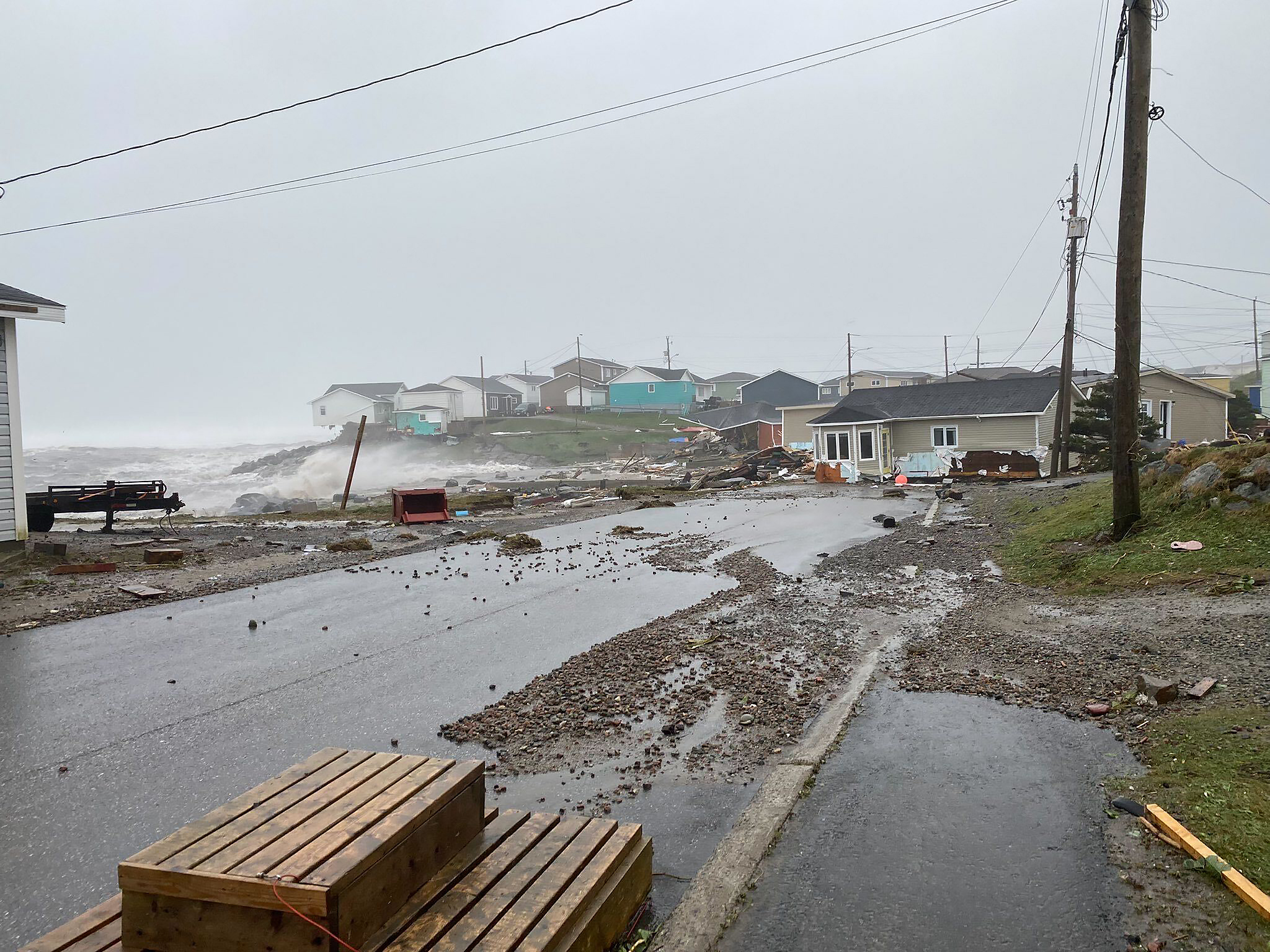Some of the damage in Port aux Basques, Newfoundland and Labrador, caused by post tropical storm Fiona. Devastation is widespread here and in other parts of Atlantic Canada, but closures due to power and internet outages seem the extent of the impact for the aftermarket. (THE CANADIAN PRESS/HO-Wreckhouse Press-Rosalyn Roy)
The impact of Hurricane Fiona on Atlantic Canada has been incredibly significant, but aftermarket organizations are confidently coping with the aftermath.
Craig Gunson of Speedy Automotive, a Carquest associate with five branches in Newfoundland including one in the hard-hit community of Port Aux Basques, says the storm left a mess when it rolled through Atlantic Canada on September 24 and 25.
“There’s nothing on the go. It’s just a total cleanup. A total mess there. I was out there yesterday and the store’s closed today. We had no power, no internet,” he told Jobber Nation Tuesday.
He says that physically, the Speedy Automotive building didn’t fare too badly, with just a window blown out. But the issue of cleanup and pitching in are first and foremost.
“A lot of materials just washed in behind our building there, because we were on the ocean.
“Everybody around here, they’re doing donations. And [shops] are not even open right now. I was up there yesterday and no shops were open at all.
“They are just helping the community, doing the cleanup and everything. But now Port Aux Basques does have the military coming in, helping clean up.”
Gunson says he expects that the store will be up and running by Thursday, a remarkably short time offline considering the devastation locally.
Doug Squires is president and chief executive officer of Colonial Auto Parts/A.P.M. Limited, based in St. John’s, Nfld., part of the Uni-Select Bumper to Bumper network of independent businesses. Colonial operates branches in Newfoundland, Nova Scotia and New Brunswick, some directly in the path of the storm.
“Essentially the storm came through the Canso Causeway area in Cape Breton, which is what joins Cape Breton Island to Nova Scotia. So fortunately, that is less populated than if it was hitting Halifax, but that’s the eye of the storm. The storm encompassed most of Cape Breton and significantly, Sydney and Sydney Mine. So both those locations are still offline today, without power and a fair amount of trees down and the power lines down. But by and large, we had no major impact to either staffing or to our locations that we’re aware of at this point.
“Obviously it carried on and devastated Port Aux Basques. What a lot of people may not realize or understand is the Trans-Canada Highway, in essence, is the ferry from North Sydney to Port Aux Basques. So that’s the lifeline, the supply line to Newfoundland. I would say at least 75% or more of everything goes through there.
“As I understand it, even though Port Aux Basques was devastated, the actual Marine Atlantic [ferry] is back on regular sailings and regular schedules. The ferry terminal is in a bit different location than Port Aux Basques, the community. So I haven’t heard of any shipping delays or anything of that nature.
“So by and large, while there was wholesale devastation in some areas, it doesn’t seem to have negatively impacted resupply.”
Squires says he has heard from many aftermarket connections since the storm, including a broad cross-section of suppliers and members of competing distribution groups. He has also heard of offers of assistance coming from those who were cared for in Gander, Nfld., in the wake of the 9/11 attacks, looking to give back.
Closer to home, there are many looking to provide assistance, but Squires urges that the focus should be on monetary contributions through professional organizations, who can provide the specific items needed in the different locations.
“I know there was one where they were collecting food and everything, but if everybody sends Carnation Milk, well, they’re going to have a lot of Carnation Milk, but there’s no coordination as to what else they might need. So realistically, our focus is going to be on the professionals at the Red Cross and the Salvation Army, who are trained and experienced in disaster relief.”
Prime Minister Trudeau announced earlier in the week that the Canadian government will be matching all hurricane relief donations made to recognized charities, doubling the impact of those donations.
“That’s really where everybody should be focused,” says Squires. “They know what’s going be needed, whether it’s bedding, clothing, shelter or whatever.
“So, the focus really needs to be towards the professionals. That’s who we’ll be supporting.”
For those who wish to donate, the Canadian Red Cross has a specific Donate to the Hurricane Fiona in Canada Appeal AT THIS LINK


0 Comments